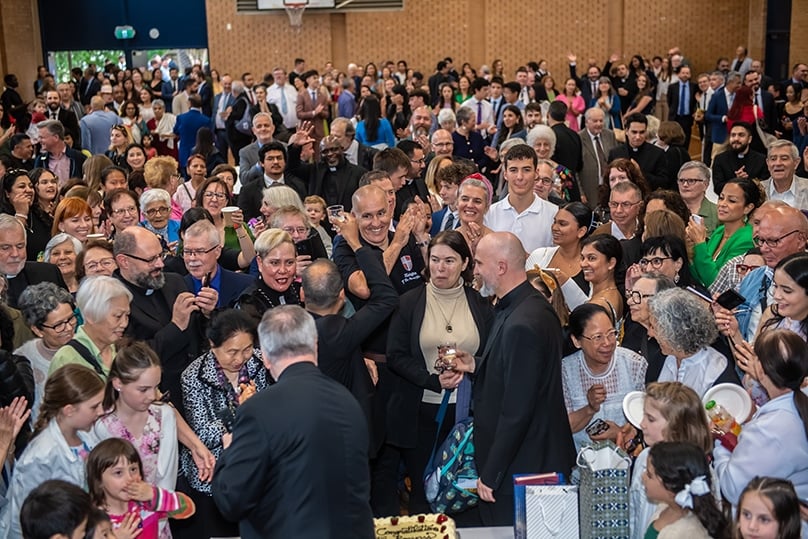
A few weeks ago, the Catholic Weekly published a story about Dan Schutte and the writing of Here I Am, Lord. Judging by the comments section on our Facebook page, the song is not popular with many of our readers, who object to 70s classics such as this.
I’m not a humbug like them. I love the songs/hymns that accompanied the era of the felt banner, and want to be able to belt them out with gusto on a Sunday. For the haters, the Galilee Song is also one of my favourites.
Reading the synthesis report on the Synod on Synodality this week, another “classic” came to mind: “We are one in the Spirit, we are one in the Lord. We are one in the Spirit, we are one in the Lord. And we pray that all unity will one day be restored. And they know we are Christians by our love, by our love, yes they’ll know we are Christians by our loooooove.”
As the song suggests, the mark of the Christian is the way that we love each other; it is what differentiates the Christian community from non-believers and those of other religious beliefs.
However, the synod’s synthesis report seems to suggest that this is not something innate to being a Christian, but rather a specific “ministry” into which a person needs to be inducted, including with public recognition.
The Instrumentum Laboris described this as “an all-ministerial church.” The synthesis report, while recommending this term be clarified to avoid ambiguities, went on to call for the establishment of new ministerial roles.
It calls for “more creativity in establishing ministries according to the needs of local churches” and proposes “a fuller ministry of the Word of God, which, in appropriate contexts, could also include preaching,” “establishing a ministry assigned to married couples committed to supporting family life” and even the establishment of a new “ministry of listening and accompaniment.”
The synthesis report goes on to recommend “appropriate means and moments of acknowledgment by the community of lay charisms and ministries,” saying that this “could happen on the occasion of a liturgical celebration in which the pastoral mandate is bestowed.”
There are a few challenges with this. Firstly, it is not clear to me why we need more church-instituted, publicly-recognised ministries.
If, as the retro song reminds us, “they will know we are Christians by our love,” then why do we need to be commissioned to engage in them in a liturgical celebration—in fact, isn’t that liturgical celebration of commissioning our baptism?
As the Second Vatican Council taught us in Lumen Gentium, the lay apostolate, “is a participation in the salvific mission of the church itself. Through their baptism and confirmation all are commissioned to that apostolate by the Lord Himself.”
Secondly, the idea of instituting people into ministries of “supporting family life” or “listening and accompaniment” may have the unintended effect of restricting, rather than expanding, the mission and ministry of the laity.
After all, if we have dedicated ministries of “supporting family life” or “listening and accompaniment,” it will be tempting for some to think that that this is not their role because they have not been instituted into this ministry, when in reality, supporting vocations (including the vocation to marriage) and listening to and accompanying others is the role of all of us.
Thirdly, it may give a perception that all ministry in the church needs to come with formal structures and some type of recognition.
Some of the most effective ministries in the church are a result of the Holy Spirit’s promptings in a person’s heart, rather than a pastoral planning session, and while recognition is important so that we do not take people for granted, Christ often extolled the importance of good works done in secret.
For these reasons, I hope that when the synod clarifies the definition of “an all-ministerial church,” it leans more towards the Vatican II vision that all of us are called to participate in the mission of the church, or—as the synthesis report says—“all the baptised are co-responsible for mission, each according to his or her vocation, competence and experience” and less towards a suggestion that we all need to be instituted in ministries that have names and titles and public celebrations.
